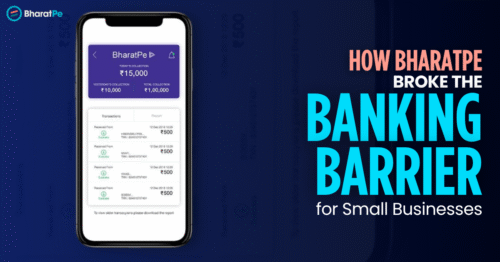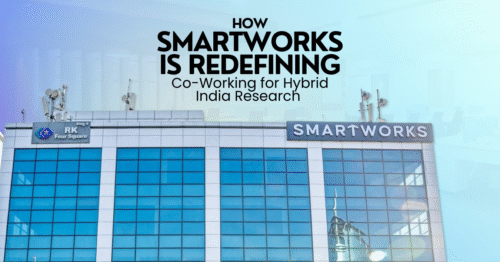In the evolving world of digital marketing, your grocery cart may now play a much bigger role than you think. Zepto, India’s fast-growing quick commerce platform, has partnered with global advertising technology leader The Trade Desk to do something new: turn everyday shopping data into smarter, more relevant advertisements across OTT platforms, music streaming services, mobile apps, and websites.
This collaboration reflects a broader shift toward retail media—a strategy where retailers use their customer data to help brands target digital ads more precisely. But this isn’t just about product recommendations inside a shopping app. It’s about shaping your overall online experience based on what you actually buy, not just what you browse.
Turning Carts into Signals
Zepto has over 60 million monthly users spread across 80+ cities in India. Every day, it fulfills thousands of orders for groceries, home essentials, electronics, personal care, and more. Each order holds important clues about consumer behavior—what people are buying, how often, and in what quantity.
This data becomes extremely valuable to advertisers when used effectively. Unlike general browsing activity, purchase data shows real intent. It allows marketers to stop guessing and start knowing—who’s actively buying what, when, and where.
By sharing anonymized insights (with user consent), Zepto enables brands on The Trade Desk’s platform to reach the same shoppers beyond its app—across various digital channels like OTT shows, music apps, news websites, and more.
What This Means for You as a Viewer
Imagine you recently bought a baby lotion and a pack of diapers on Zepto. With this new partnership, you might soon see relevant ads—like baby food, strollers, or even family insurance plans—while watching your favorite series on an OTT app. This isn’t coincidental. It’s based on actual data signals that link your shopping behavior to your viewing experience.
This approach helps advertisers serve content that’s more aligned with your current life stage, needs, and preferences. Instead of random, irrelevant ads, you see ones that could genuinely be useful—at the right time, in the right place.
And importantly, none of your personal details are shared. Only aggregated, non-identifiable behavior patterns are used. Plus, this targeting only applies to users who’ve agreed to receive personalized advertising.
Smarter Advertising, Better Results
What makes this strategy even more powerful is something called closed-loop attribution. In simple terms, it means an ad can now be directly linked to a sale.
Let’s say a user sees an ad for a specific shampoo brand on an OTT platform. A few days later, that user purchases the same shampoo on Zepto. Thanks to this data integration, the advertiser can now track that conversion—proving that the ad worked. This helps marketers measure the return on investment (ROI) with far greater precision.
For brands, this is gold. Instead of spraying ads across the internet and hoping for clicks, they can track what’s working, reallocate budgets instantly, and optimize campaigns in real time.
FMCG Brands First, But Not the Only Ones
Fast-moving consumer goods (FMCG) companies will likely be the first to benefit from this model. Products like personal care, packaged foods, beverages, and household cleaners already dominate Zepto’s sales.
But the real opportunity lies in expansion across industries. According to Tejinder Gill, Managing Director of The Trade Desk India, even non-endemic brands—like automobile, insurance, or fintech companies—can use Zepto’s signals.
For example:
A user consistently buying baby products might soon be in the market for a family car.
Someone ordering protein shakes and gym snacks could be a target for fitness apps or health insurance.
A customer frequently buying premium products could be shown luxury travel offers or high-end credit cards.
It’s about anticipating future needs based on current buying patterns.
Retail Media: The New Digital Gold
Retail media isn’t new globally, but it’s just gaining serious traction in India. Giants like Amazon and Walmart in the U.S. have already built billion-dollar ad businesses on top of their commerce platforms. Zepto’s move places it in similar territory in the Indian market.
As third-party cookies phase out and privacy laws tighten, first-party data—information collected directly from users—is becoming the most powerful tool in digital marketing. Platforms like Zepto, which interact with consumers daily, are in a unique position to turn their operational scale into advertising value.
Privacy and Control Stay with the User
It’s important to underline that privacy remains central to this new model. Zepto and The Trade Desk emphasize that users must opt-in to data sharing. Even then, no names, contact information, or personal identifiers are used.
For users, this provides more control over the types of ads they see. And for those who opt in, it could actually result in a better digital experience—one where ads feel useful rather than intrusive.
Conclusion: You’re Not Just Shopping—You’re Shaping the Future of Advertising
Zepto’s partnership with The Trade Desk is more than a strategic alliance. It’s a glimpse into the future of digital advertising—where data drives relevance, context drives creativity, and results drive strategy.
For users, it means seeing ads that actually match their lifestyle. For brands, it’s a smarter way to reach real buyers. And for the advertising industry, it’s proof that purchase behavior is the new currency of attention.
So the next time you place an order on Zepto, just remember—you might be shaping more than your grocery list. You’re helping redefine how the digital world speaks to you.
Read
Zepto Orders & OTT Ads Connection | How to Zepto connects Right Audience
Follow Us | Our Services | Contact Us | Linkedin | Instagram







